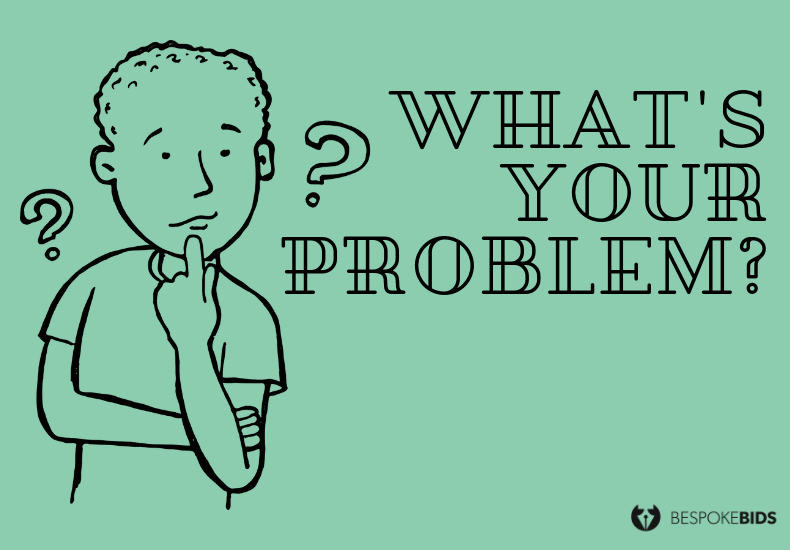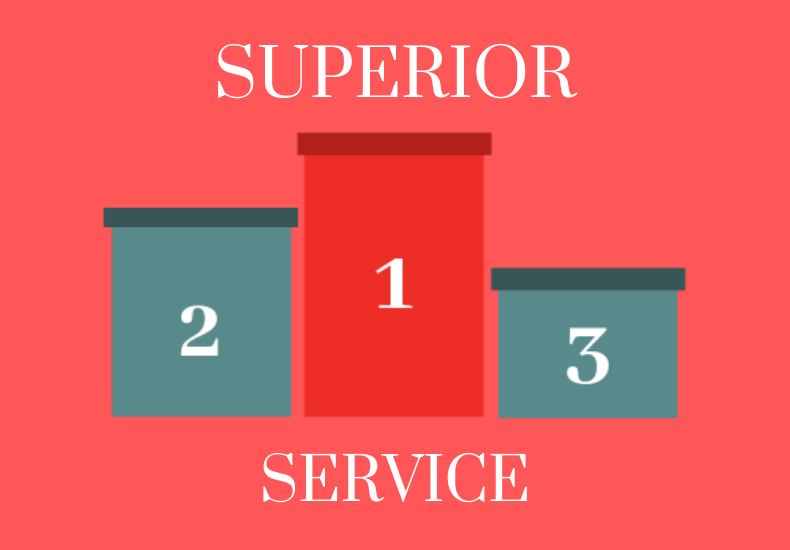
To win a bid, it helps to be different. Here are a few of our top tips on how to show that you’re not only good, but better.
1. Study the Competition
Analyse the industry. Studying the competition allows you to discover their weaknesses. As a basic example of this, you may find that a competitor is receiving bad client reviews. Study the reviews and see if there is a common theme. If so, you can easily pinpoint a weakness in their service.
This is when we as writers can employ a technique known as ‘Ghosting’.

Ghosting is accentuating your strength in a certain area which you know a rival to be weak in. There is no need to make direct reference to them as when an assessor evaluates your proposal next to theirs, the glaring weakness at the centre of their offering will be immediately apparent.
Are there any niche areas of your industry that you could exploit? Having studied your competitors and found the gaps in their offerings, you may have identified certain niche areas of your industry that are under-served. You can then tailor your service to fill these gaps.
2. Identify the Buyer’s Problems

Identify the problems that the buyer may be experiencing with their current provision. Once you have done this, propose solutions and show how you can deliver these. Share your knowledge of industry trends. This demonstrates to the buyer that you are a proactive organisation who will pay attention to what they require and not just deliver a ‘one size fits all’ service.
It will also establish you as an authority in your industry; someone they can seek advice from throughout the duration of any contract that they may offer you. This defines you as a valuable resource. It is this attention to detail which will help to differentiate you from your competitors.
3. Know Your Service

Know your service. This may sound obvious and you may be thinking, ‘Of course I know my service’ but you would be surprised how little some clients know about the broader context of their industry. This often only becomes apparent when challenged to suggest innovations or explain how they can deliver a higher level of service to that of their competitors.
A thorough knowledge of your service is therefore essential to securing contracts through responding to tenders. During the drafting of a proposal you will be posed questions that may exploit any gaps in your overall knowledge of either your service or your industry. If you are coming up short here, your rivals will be able to exploit this. In contrast, a thorough knowledge will help expose any gaps in your competitors’ understanding of their service or industry. A comprehensive knowledge will shine through when an adjudicator has rival proposals in front of them.
4. Demonstrate Superior Service

Buyers want to know that they are being provided with value for money. What added value can you bring to the provision? What do you do that goes above beyond the standard levels of service that would generally be considered acceptable in your industry?
This is a chance to differentiate yourself from your competitors. By showing you actively seek ways to advance your offering and provide beyond what is merely being asked for, you will show the buyer that you are a customer focused organisation that cares about delivering service excellence. It is these key differentiators that help separate you from the competition.
Do you offer superior levels of customer service? If so, explain in detail how exactly you provide this. Provide examples of how you have previously improved a client’s service through your superior levels of service. What did you do that brought benefits to them and how did you implement it? Concrete examples add credence to a submission. Anyone can say that they deliver excellent customer service, if you are actively able to demonstrate this through examples, you will stand out from those paying mere lip service to the ideal.
Always make yourself available to the buyer throughout the bidding process. Promptly and thoroughly respond to any queries they may have about your proposal. This will set the tone for any future dealings you may have with them. Making a good impression at this stage can be the difference between winning and losing a contract. It the buyer feels like they would like to work with you, they will be better disposed to your proposition when it comes to evaluation.
5. Serve, Don’t Sell

If your tender is full of promotional material or reads like a sales pitch, you will lose. It really is that simple. Despite much evidence to the contrary, evaluators are not stupid! If they believe that an organisation is bidding for something merely to line their own pockets then they will immediately discard the bid. Like everyone, they want to feel they are been provided a higher level of service and will evaluate accordingly.
6. Innovate

What innovations have you recently brought to the service that you are offering? If possible, you can use recent examples of how you have improved a client’s service by implementing positive changes. Again, this demonstrates you are a progressive organisation that seeks constant improvement and will not just rest of its laurels while collecting remuneration for delivering to the specified requirements of the contract or SLA.
Do you utilise any technology, software or machinery that is more advanced than that of your rivals? If so, detail this. Explain the benefits of the advanced tools that you offer and how this will benefit the buyer above and beyond that which your rivals can provide.
7. Be Flexible

Provide examples of how you have tailored your service to the everchanging demands of a client. Show you are proactive. If you are a smaller organisation bidding against larger, more established rivals, you can demonstrate how you are proactive and responsive to their requirements in any given scenario.
Larger organisations are often cumbersome, with added layers of bureaucracy to negotiate before a solution can be provided to any issue a client may be experiencing. You can show them that you can resolve any issues rapidly. Beyond that, you can demonstrate that not only will you solve the immediate issue, but also implement mitigation strategies to ensure the problem will not, or at least is less likely to occur again. This will provide you with a vital advantage over the big boys and set you apart.
8. Make it Memorable

Don’t just churn out stock responses and expect the buyer to be enthralled. Most proposals are dull reading, if you are submitting the same material that you have used for your last ten proposals it is likely that the content will be dated and may not represent the current state of your offering. This ‘one size fits all’ approach rarely works. Show that you fully understand the requirements of the buyer and provide an engaging response that will capture their imagination in a way that stock content never could.
To Conclude
As we have discussed. There are several ways in which you can differentiate yourself from your rivals. By applying these strategies to your bidding process, you will set yourself apart from less engaged competitors. When an evaluator sees the level of detail your organisation is going into in all aspects of the service that you are offering, they will be well-disposed to offer you the contract above other high scoring competitors who may not have been as thorough. It is this level of detail that will make the buyer want to work with you.
Did you enjoy this post?
Click here to learn about 8 more ways to improve your bids.
Follow Bespoke Bids on Linkedin to keep up with our day-to-day operations. We post live tenders, tips and tricks and more.


